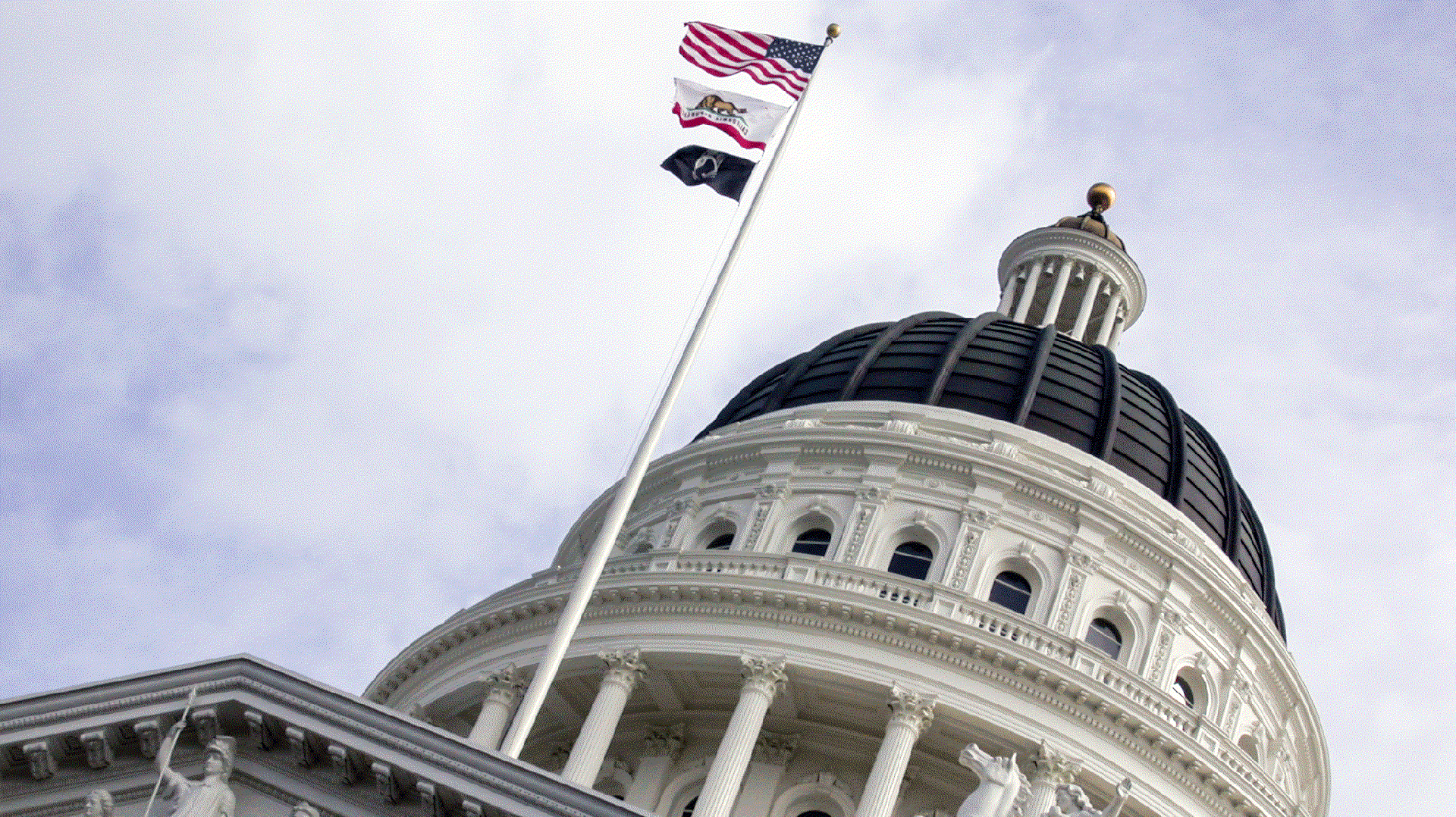Liberals are happy with California democracy. Conservatives, not so much

Alex Wild | Wikimedia Commons
August 10, 2023
Most California voters have a positive view of the state’s democracy, but they’re deeply divided along partisan lines over lagging diversity in the electorate and perceived risks of fraud in voting processes, according to a new poll from the UC Berkeley Institute of Governmental Studies (IGS).
Overall, two of every three voters report satisfaction with the state of the state’s democracy. But 30%, including 67% of Republicans, are not satisfied at all, the report found.
Among Republicans and conservatives, nearly seven in 10 voters polled by IGS said they had little or no confidence in California’s voting processes, suggesting the influence of former President Donald Trump’s sustained attacks on the nation’s election security. Fully three-quarters of the state’s GOP voters report major concerns about voting fraud, a number that jumps to 85% among strong conservatives, though there is no evidence that fraud has warped state election outcomes.
Democrats and liberals worry much less about such issues. But they harbor deep concerns that white, affluent and older voters who dominate the electorate do not reflect California’s diversity, the IGS Poll found. And unlike most Republican voters, strong majorities of Democrats and liberals believe that the state has an obligation to encourage informed voting among marginalized groups and to invest in voter education.
Overall, about half of all California voters across partisan lines say it’s a major concern that voters of color and younger voters have lower levels of political participation.
Persistent participation gaps between different demographic groups show that California has a long way to go in building a fully inclusive and representative democracy, Marquis Mason, advocacy partnership coordinator at California Environment Voters, said in the IGS report. Targeted investments into electoral education and outreach are needed to close the participation gap and uplift community groups that are trusted messengers to underrepresented communities.
Two IGS Poll reports released this week — one focused on the voting gaps and the other on election integrity — are the first of five that will use data from the latest poll to analyze voter attitudes about democracy in California. The poll was administered online, in English and Spanish, from July 20 to 25, among 6,164 registered voters. Funding for the poll was provided by the Evelyn and Walter Haas, Jr. Fund.
According to 2022 data from the U.S. Census Bureau, Latinx people comprise 40.3% of California’s population, followed by non-Hispanic white people at 34.7%, Asian-Pacific Islanders at 16.8%, and Black people at 6.5%.
But the first IGS Poll report found striking disparities in who votes and who doesn’t.
- Among those who are regular voters, 71% are white. But only 14% of the state’s regular voters are Latinx, 9% are Asian/Pacific Islander and 5% are Black.
- Latinx citizens comprise 41% of non-voters, compared to 34% of whites, 15% of Asian/Pacific Islanders and 7% of Black people.
- Californians aged 18 to 29 comprise only 4% of regular voters in the last seven statewide elections, but 70% of those who voted infrequently or not at all.
The poll found that those demographic disparities are troubling to voters across party lines: Three in four state voters say the lower participation rates among some groups are a risk to representative democracy and about half called this a major concern.
But what should be done about it?
The pollsters found a broad consensus on support for government action to close that gap through campaigns to inform voters about the timing of elections and their options for voting. Nearly two-thirds of voters overall said government should provide more funds for such voter education efforts.
Again, however, there were deep partisan divisions. More than 80% of Democrats said the state should spend more on election education targeting marginalized communities, compared to just over 30% of Republicans.
Even among Californians who don’t vote, the reasons for not voting reflect stark partisan disagreements.
Republicans who don’t often vote are more likely than Democrats to believe special interests and big money are controlling things, the poll reported, or that their vote doesn’t matter much, or that voting systems are corrupt and election results can’t be trusted.